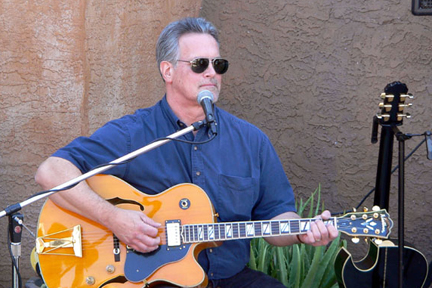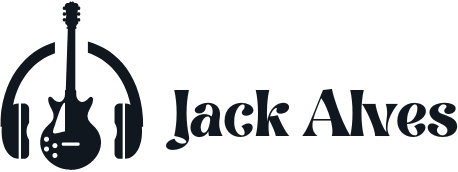ABOUT JACK
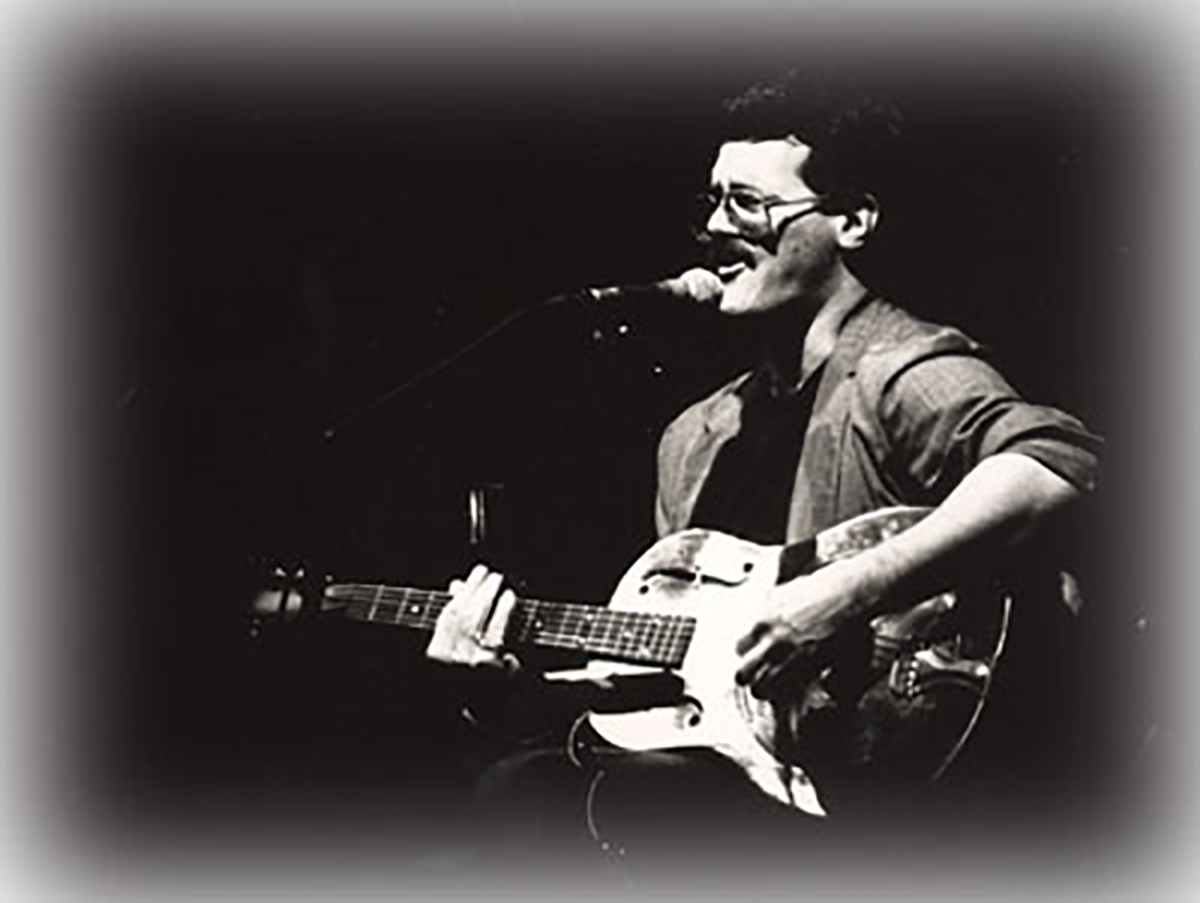
Born into the N.Y. hot-bed of rock and roll, Jack Alves had the advantage of growing up in Long Island. In the 1950’s and early 60’s AM radio ruled the day, with D.J.s such as “Dandy Dan” Ingram, Gary Stevens, “Murray The K” and Alves’ mentor Bruce “Cousin Brucie” Morrow. At his Huntington, N.Y. high school, many garage bands flourished. Harborfields High encouraged these bands to play at school events. (Another Harborfield alum who went on to bigger and better things — Mariah Carey).
Alves credits the times and the environment with shaping his musical preference and teaching philosophy. “The music I was raised on consisted of vocal groups like The Four Seasons, Dion And The Belmonts as well as instrumental bands such as The Ventures and The Safaris. Doo Wop and solo vocalists also played a major role in my education.” Also, the rhythm and blues bands were a tremendous source of inspiration. “B.B. King, all the Motown people and the soul bands were very important to me. Chuck Berry and Howlin’ Wolf just slew me!”
The British Invasion snagged Alves and his buddies into the joy of performing. “I’ll always be indebted to the Beatles, Stones and DC Five for providing me with an appreciation for guitar-driven dance music. I always felt that when I was on stage, I had the best seat in the house. I could check out the foxiest girls and they inspired me to practice harder so I could perform better for them. To this day, I still consider my audience with the utmost care.”
For private engagements, I tend to customize musical programs for special events. Sometimes, as a soloist, I find myself playing guitar at a christening, sometimes a backyard barbeque; other times I’m dedicating songs at a memorial service in a house of worship. These situations require an awareness of the particular needs of who you are playing for.
When the Alves family moved from New York to Arizona, there was no one to jam with, and Jack continued practicing on his own (1968), by now the psychedelic music movement was in full swing and Jack’s influences became Cream, The Electric Prunes, Iron Butterfly, and his all time hero, Jimi Hendrix.
“Jimi opened the door for everyone. He benefited greatly from playing in a variety of bands. These band leaders would tell Jimi ‘no on wants to hear long guitar solos; keep it short!” (But Hendrix knew better). I recall Jimi telling the story of hearing a great sax player wail on a jazz solo. The guitar should be able to do that, he thought. …. you know the rest.
This appreciation of other instruments by Hendrix parallels another guitarist’s philosphy — Andres Segovia. It was Segovia who felt that the classic guitar could mimic other instruments in the orchestra. This lead to composers dedicating works to the maestro and expanding the repertoire of the guitar.
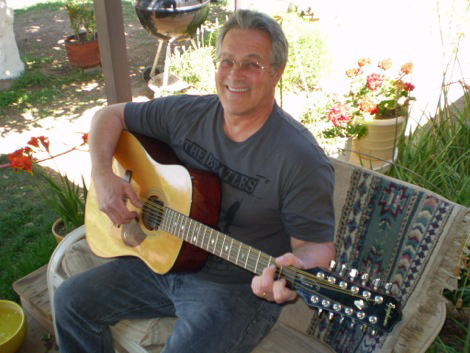
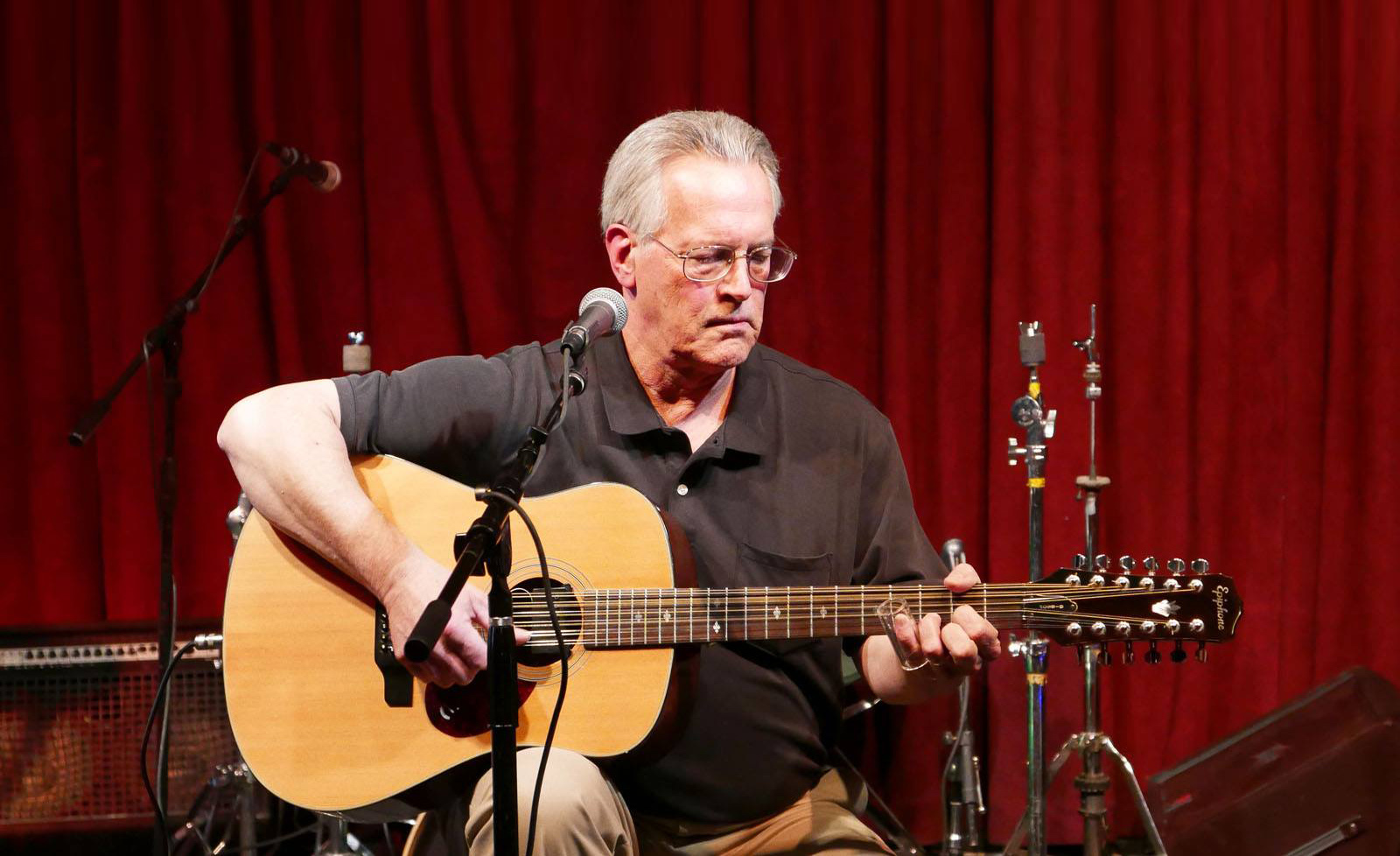
Alves had been introduced to Segovia as well as Django Reinhardt and Charlie Christian by his father, a New York jazz guitarist of pre-World War II vintage. “Dad never cared much for blues or rock and roll. He thought they were primitive and preferred progressive jazz. He liked Barney Kessel, Charlie Byrd and Les Paul. He never had an interest in fusion guitarists, thinking most modern guitarists were overrated. The only players he ever had any admiration for were Glen Campbell and George Benson.”
By 1969 radio on Phoenix was about to undergo a revolution. A small band of hippies from Tyler, Texas, would alter the landscape of music listening forever. Led by William Edward Compton and Hank Cookenboo, this adventurous group of young D.J.’s would transform KCAC from to a sunrise-to-sunset AM sleeper to a progressive rock radio station that played long album cuts and fringe artists like Captain Beefheart and Frank Zappa.
The exposure to “non-pop” performers helped Alves broaden his own musical horizons. While working as a counselor at the Terros Drug Treatment Facility, Alves would tune in KCAC and request something mellow to help talk down acid bummers and manage other crisis situations. “Of course the music of those days was an important part of the social movement. But some people may not be aware of how important the same music was in the treatment of drug related problems. KCAC would publicize the Terros Program and let people in trouble know there was a place they could turn to for help.”
After the politics of funding drove Alves from the drug abuse treatment world, he plunged into music full force. It was during this time his playing changed from electric to solo acoustic guitar. Hank Cookenboo at KDKB radio introduced him to the music of Taj Mahal, David Bromberg, John Fahey and Leo Kottke.
“Once I heard Leo, I knew the acoustic guitar was for me. I loved being in bands and playing for dancers, but the simple solo voice of the wooden guitar was much more of a personal statement for me. I bought myself a crummy acoustic twelve string and never looked back!” Hank and other KDKB D.J.’s would interview Alves on the air and have him perform his music. “It was a total thrill. I was always nervous – that my New York mouth might get me (and the station) in trouble.”
The techniques of solo guitar playing came quickly to Alves. By now, a life long guitarist in his mid-twenties, the one aspect of acoustic guitar he had trouble with was finger picking. “I just couldn’t seem to grown my nails properly; they would always break. As for the metal finger picks, they would usually fall off and drop into the sound hole.”
Strangely enough, this deficiency turned out to be a boon to Alves’ performing prowess. “People familiar with the genre would comment on how amazing my playing was. They seemed to be intrigued with the flat picking of tunes that were usually fingered. I couldn’t bring myself to tell them that it was ineptitude rather than skill that resulted in this approach.”
Alves finally developed his own finger style when he started dropping flat picks. “I couldn’t hold onto them and started to worry if maybe my playing days were numbered. But when I worked with David Bromberg, he assured me that there was no single school of finger picking, that players adapt to what’s necessary.” (See performances).
Alves has spent over 25 years as a guitar teacher in the Scottsdale area. “It’s truly rewarding work. I help my students get in touch with their music, and they keep me up to date on what’s happening. I wouldn’t have known Nirvana or Greenday if it wasn’t for the students.”
Alves considers supportive parents of his students a major help in working with young people. “A majority of my kids were raised on classic rock of the 60’s, 70’s and 80’s. Occasionally, I tell them to raid their folks’ record collection to find songs to study. Also, today’s parents seem to consider rock and roll an integral part of their child’s education.”
While he bills his program as “self-paced”, there must be some evidence of effort. “Anyone who doesn’t practice is forced to listen to The Cowsills for the duration of the lesson. You can imagine how that goes over. But that form of torture does get results.”
Today, Jack Alves continues to perform, teach and compose.
